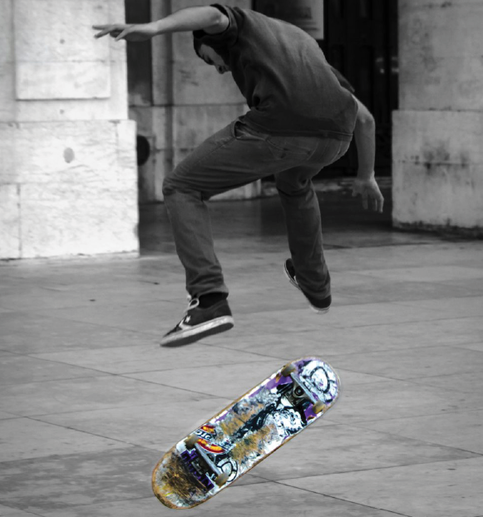By Drew McCreadie

FOR most people, enjoying humour is a highly intellectual process, whereby one is delightfully tricked by the wit and genius of the comedian who uses his or her intellect to misguide us all down one road, and then, suddenly, reverse course and take us into unexpected territory wherein the punch line is revealed.
Or, it is about watching people fall down.
There is a guilty recess in each of our minds wherein lies the admission that watching something terrible happen to someone else is hilarious (for some, this recess is more like an open courtyard). It is somewhat embarrassing to admit, but there is something hilarious about watching other people fall down.
Now, of course, unless you are a psychopath, you don’t want other people to fall down, and you probably hope that if they do, the injury they sustain is not life altering. But still, watching a skateboarder trying to skate down a staircase handrail, to have the board slip out from under his feet, and then to see him drop, one leg on each side of the rail, crushing his dignities, is on some level, unbelievably pleasant to watch.
But why? There have been many studies that attempted to uncover why something that is obviously painful (and not funny to the person it happened to) is so funny. In one study, the dissonance in the brain that is caused by reconciling the danger and pain that is being witnessed with the look of confusion on the face of the victim has been linked to the laughing response that is produced. If the victim looks terrified, then usually it isn’t funny; but if they look startled as if to say, “What? My skateboard slipped out from under my feet? How unexpected! And I am about to land on this rail and scramble my eggs? I never anticipated this potentiality! But now, suddenly, at the moment, it has all become obvious that it was inevitable,” then it is hilarious.
The way the victim reacts to his or her misfortune is definitely tied to how funny it is. Most of us have witnessed some misfortune, someone bumping their head on the sign that reads “Watch your head” causing us to laugh, only to realize that the person has really injured themselves, and the laughter immediately vanishes, only then to see the injury is not that bad and that the victim is more embarrassed than injured, and the laughter immediately returns. Science seems to point to the fact that we are hardwired to find the misfortune of others enjoyable, as long as it produces the right response from the victim. They need to surprise and confuse. The joy comes from watching others confusion. And if, as in the skateboarding example, the victim has somehow set them up for the situation, it’s even funnier.
We can’t help ourselves. It’s hilarious watching other people hurt themselves.
Or, it is about watching people fall down.
There is a guilty recess in each of our minds wherein lies the admission that watching something terrible happen to someone else is hilarious (for some, this recess is more like an open courtyard). It is somewhat embarrassing to admit, but there is something hilarious about watching other people fall down.
Now, of course, unless you are a psychopath, you don’t want other people to fall down, and you probably hope that if they do, the injury they sustain is not life altering. But still, watching a skateboarder trying to skate down a staircase handrail, to have the board slip out from under his feet, and then to see him drop, one leg on each side of the rail, crushing his dignities, is on some level, unbelievably pleasant to watch.
But why? There have been many studies that attempted to uncover why something that is obviously painful (and not funny to the person it happened to) is so funny. In one study, the dissonance in the brain that is caused by reconciling the danger and pain that is being witnessed with the look of confusion on the face of the victim has been linked to the laughing response that is produced. If the victim looks terrified, then usually it isn’t funny; but if they look startled as if to say, “What? My skateboard slipped out from under my feet? How unexpected! And I am about to land on this rail and scramble my eggs? I never anticipated this potentiality! But now, suddenly, at the moment, it has all become obvious that it was inevitable,” then it is hilarious.
The way the victim reacts to his or her misfortune is definitely tied to how funny it is. Most of us have witnessed some misfortune, someone bumping their head on the sign that reads “Watch your head” causing us to laugh, only to realize that the person has really injured themselves, and the laughter immediately vanishes, only then to see the injury is not that bad and that the victim is more embarrassed than injured, and the laughter immediately returns. Science seems to point to the fact that we are hardwired to find the misfortune of others enjoyable, as long as it produces the right response from the victim. They need to surprise and confuse. The joy comes from watching others confusion. And if, as in the skateboarding example, the victim has somehow set them up for the situation, it’s even funnier.
We can’t help ourselves. It’s hilarious watching other people hurt themselves.



















